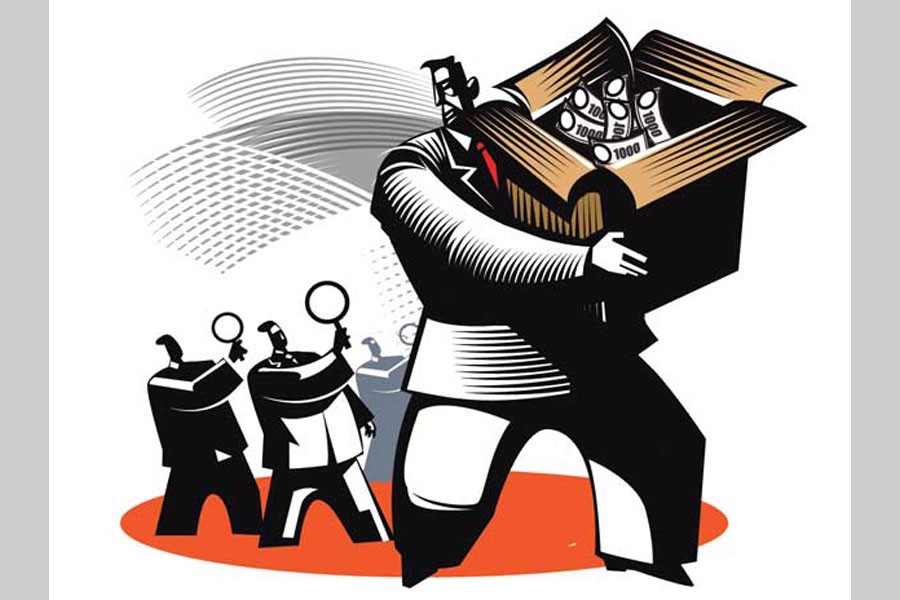It is not at all surprising that banks, specialised or otherwise, and financial institutions (FIs) are not making serious effort to recover the bad loans that they write off from time to time. The situation, predictably, is a bit serious in the case of five state-owned specialised banks and FIs as they had an aggregate volume of written-off loans worth Tk 6.21 billion until July last. By now, its size naturally has grown even bigger. Allegations have it that these institutions are not paying due attention to the task of recovering the written-off loans. The amount -- a paltry 100 million -- recovered during the first nine months of the outgoing fiscal year does tell it all. It is most likely that these banks, during the same period, wrote off bad loans that, put together, would be far bigger than the amount they had recovered.
The truth is banks and FIs do resort to the practice of writing off soured loans for it helps them give their financials a better look. However, it does take a toll on their profitability. Banks are bound by law to keep aside an amount equivalent to that they write off. This particular condition is supposed to discourage banks and FIs from taking recourse to writing off bad loans from their balance-sheets. Yet the volume of written-off loans has been growing unabatedly. The latest estimate done by the country' central bank puts the figure at over Tk 528 billion.
There is no denying that the practice of writing off bad loans is very much linked to default loan culture. With the first one becoming far more intense in recent years, the volume of written-off loans, as an obvious outcome, has grown bigger. However, the second measure does not absolve either of the parties --banks and borrowers -- from their responsibilities in relation to written-off loans. Banks are required to explore all possible measures to recover their money while borrowers feel obliged to repay the same.
Obviously, banks or FIs are compelled to write off loans when they fail to recover the same despite their best efforts. Even the country's legal process is not that conducive to the recovery of default loans. The Money Loan Courts were supposed to be helpful, but the real outcome has not been particularly encouraging. These courts are now overburdened with cases, which is leading to long delays in resolving loan disputes. Besides, the banks find it difficult to get execution of the verdicts delivered in their favour either for stay orders issued by higher courts or lack of support from the officials at the ground level.
Banks are required to spend a substantial amount of money and energy in their bid to recover the written-off non-performing loans. However, there are at least a couple of options before them. One is alternative dispute resolution (ADR) that offers an opportunity to settle loan disputes between banks and borrowers and the other is availing the services of recovery agents. None of the options is being tried to any notable extent here. The central bank should examine the issue of allowing loan recovery agents seriously and encourage banks and borrowers to make the best use of the ADR provisions.


